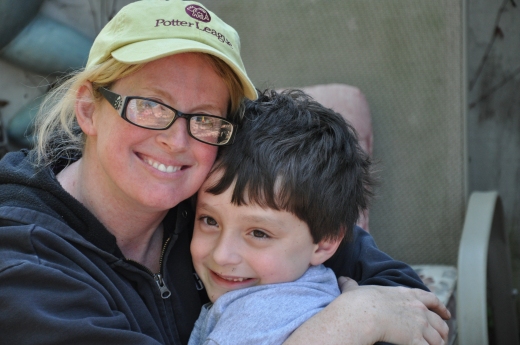Here’s a scenario from a typical afternoon at our house: The children are playing. They grab a snack. They might run upstairs to get a toy. They may decide to watch a DVD. I am here–in the very room they’re inhabiting, or perhaps in the adjacent room. I might be writing or doing the fourth load of laundry of the day. I could be making dinner. The point of all this, of course, is that I am largely unnoticed by the young men with whom I share this space.
Until the phone rings . . .
The minute I say hello, the energy shifts: I am suddenly in demand–the most popular girl in the place. Children that were thirty-six seconds before happily and somewhat silently ensconced in an art project or reading a book are now full-on wrestling, suddenly looking for the scissors, or depositing laundry into the trashcan. It is audible mayhem, and it’s a phenomenon unlike any other.
I used to be better on the phone, and even enjoyed the occasional leisurely conversation; but lately, given the demands for attention that ringing bell elicits, I have been avoiding it–not answering it, only returning calls if I have a moment alone.
Some have advised me to tell the boys that when the phone rings they need to adhere to certain boundaries–which I have done and do, and sometimes it works. But I truly have to reserve that for the times I have no choice but to be on the phone. Informal chit-chat is no longer a possibility. Relaxed conversation is anything but relaxed when you have one child needing a diaper change and the other two declaring each other arch-nemeses. It’s not even that I can’t give my full attention to the person on the other end of the line; oftentimes I can’t even hear them.
So, when you call, please don’t be offended when I don’t answer. I can’t. I’ll try to call you back, if I can; otherwise, I promise to email once everyone is in bed–that is, if I don’t follow my children there . . . but my new proclivity for an eight o’clock bedtime for myself is a story for another day.







